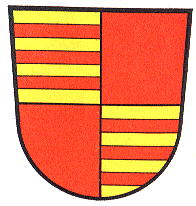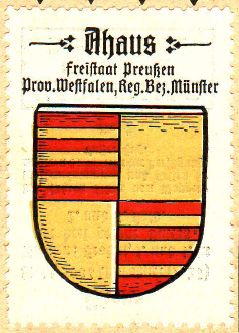Ahaus: Difference between revisions
Jump to navigation
Jump to search
Knorrepoes (talk | contribs) m (Text replace - "'''Origin/meaning :'''<br/>" to "====Origin/meaning====") |
Knorrepoes (talk | contribs) m (Text replace - "|width="15%"|50 px|right |}" to "|width="15%"|50 px|right |}<seo title="Wappen, Gemeindewappen" />") |
||
| Line 3: | Line 3: | ||
|width="70%" align="center" |'''Heraldry of the World<br/>Civic heraldry of [[Germany]] - [[Deutsche Wappen|Deutsche Wappen (Gemeindewappen/Kreiswappen)]]''' | |width="70%" align="center" |'''Heraldry of the World<br/>Civic heraldry of [[Germany]] - [[Deutsche Wappen|Deutsche Wappen (Gemeindewappen/Kreiswappen)]]''' | ||
|width="15%"|[[File:Germany.jpg|50 px|right]] | |width="15%"|[[File:Germany.jpg|50 px|right]] | ||
|} | |}<seo title="Wappen, Gemeindewappen" /> | ||
'''AHAUS''' | '''AHAUS''' | ||
Revision as of 16:35, 5 November 2012
| Heraldry of the World Civic heraldry of Germany - Deutsche Wappen (Gemeindewappen/Kreiswappen) |
AHAUS
State : Nordrhein-Westfalen
District (Kreis) : Borken (until 1974 Ahaus)
Additions : 1969 Wüllen; 1974 Alstätte, Graes, Ottenstein, Wessum
Origin/meaning
The arms were granted on April 14, 1978, but have been in use much longer.
The town was founded around the castle built by the Lords of Diepenheim in the 12th century. It was obtained by the bishops of Münster in 1406, who made it their capital in Lippe. The present arms are based on the 15th century seal of the city. It shows the arms of the Lords of Ahaus (descendants of the Von Diepenheims), with additional bars in the first and fourth quarter, to discriminate between the town and family.
| The arms in the Kaffee Hag albums +/- 1925 |
Literature : Stadler, 1964-1971, 8 volumes; Hupp, O: Kaffee Hag albums, 1920s


